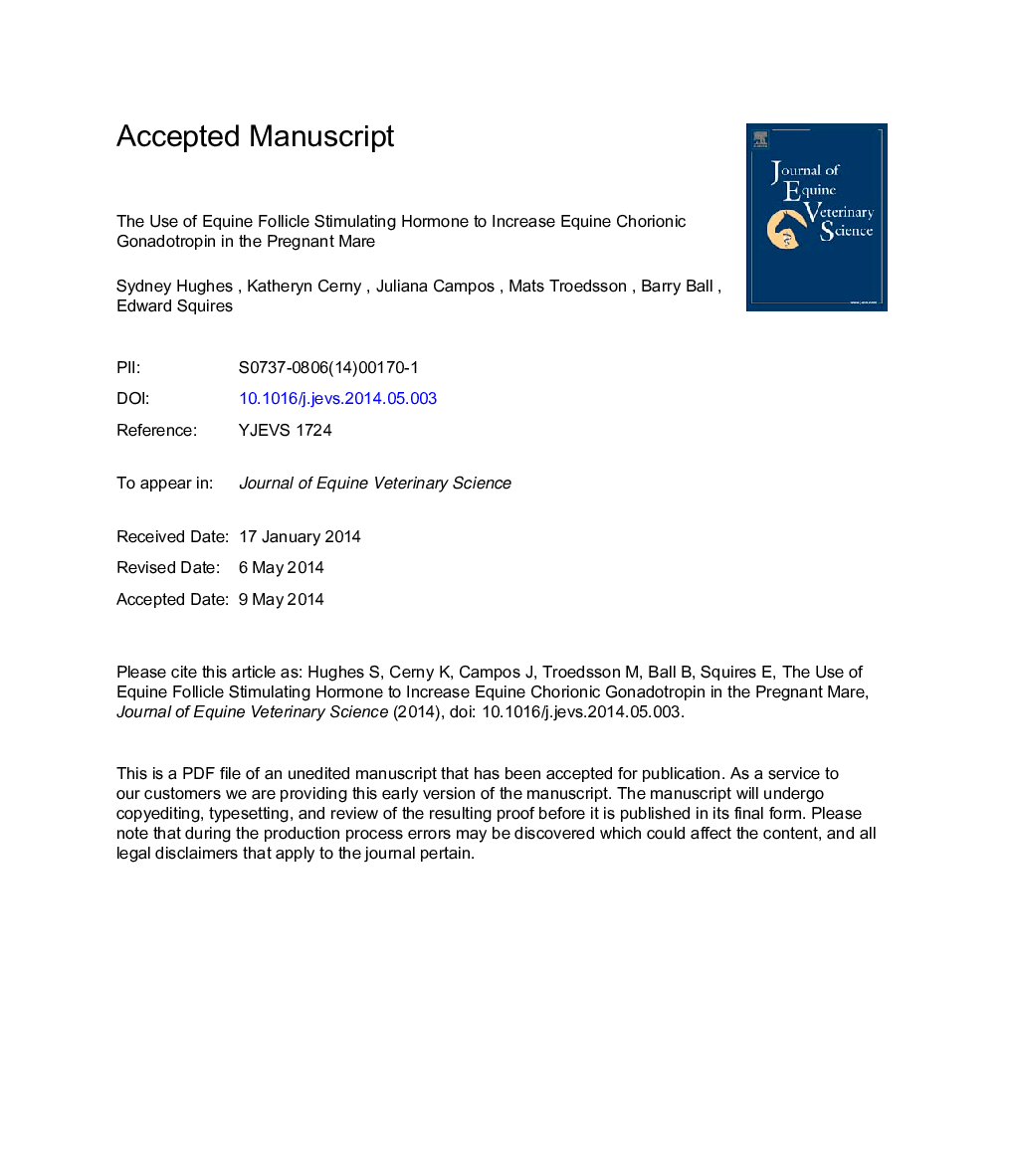| Article ID | Journal | Published Year | Pages | File Type |
|---|---|---|---|---|
| 10961383 | Journal of Equine Veterinary Science | 2014 | 14 Pages |
Abstract
Equine chorionic gonadotropin (eCG), obtained from pregnant mares, is used for assisted reproductive technologies in laboratory rodents and livestock. The objective of the present study was to use equine follicle-stimulating hormone (eFSH) to increase the incidence of twin pregnancies, through multiple ovulations, and increase eCG. Nineteen light horse-type mares were enrolled in the study. The control group (n = 9) was bred with fresh or cooled semen and given human chorionic gonadotropin (hCG) at the time of breeding. The second group (n = 10) was given 12.5 mg of eFSH intramuscularly twice a day beginning 5-7 days after ovulation. Prostaglandin F2α was administered intramuscularly the second day of eFSH treatment. Treatment with eFSH continued until follicles were >35 mm in diameter, and mares were then given no treatment for 36 hours. The mares were then bred with fresh or cooled semen from the same stallion as the control group and given hCG. Blood samples were taken weekly from day 35 to day 105 after ovulation. Serum concentration of eCG was obtained, and data were analyzed with multivariate analysis using the mixed procedure. Significance was set at P < .05. Data were combined for all mares carrying twins and compared with those carrying singletons. The group of mares carrying twins had higher peak concentrations of eCG and higher values for area under the curve compared with mares carrying singletons (P < .05). These results suggest inducing twins could be a method used to increase eCG production.
Related Topics
Life Sciences
Agricultural and Biological Sciences
Animal Science and Zoology
Authors
Sydney BS, MS, Katheryn BS, MS, Juliana MS, DVM, Mats DVM, PhD, ACT, Barry DVM, PhD, Edward MS, PhD, ACT (Hon),
